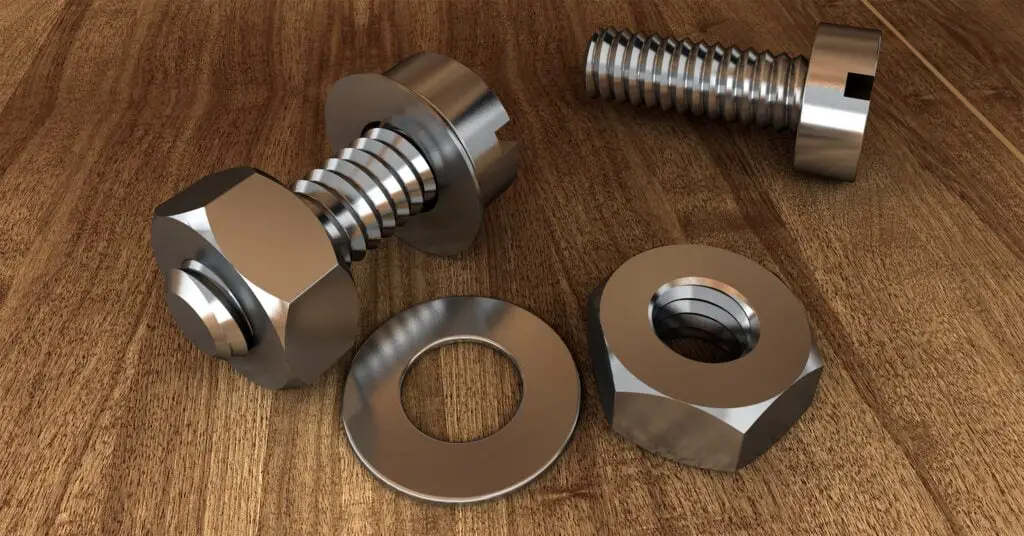
A Guaranteed In-Depth Guide to Different Types of Anchor Bolts
Anchor bolts play a crucial role in construction and engineering projects, providing secure and reliable fastening in various applications. These bolts are designed to anchor structural elements to concrete, masonry, or other solid materials, ensuring stability and safety.
In this article, we will explore the different types of anchor bolts commonly used in the industry, their characteristics, and their applications.
Wedge Anchor Bolts:
Wedge anchor bolts are among the most popular types of anchor bolts. They feature a wedge-shaped end that expands and grips the base material when tightened. Wedge anchors provide excellent holding power and are suitable for heavy-duty applications, such as securing heavy machinery, equipment, and structural steel connections. They are commonly used in concrete and masonry structures.
Sleeve Anchor Bolts:
Sleeve anchor bolts consist of a threaded stud, an expansion sleeve, and a nut. They are designed for medium to heavy loads and are widely used in applications where the base material is of medium hardness, such as concrete, brick, and block. The sleeve expands when the nut is tightened, providing a secure and reliable connection.
Concrete Screw Anchor Bolts:
Concrete screw anchor bolts, also known as tapcon screws, are a type of threaded fastener specifically designed for use in concrete and other hard base materials. They feature high-strength steel and have a unique thread design that allows them to tap into the base material without the need for an anchor. Concrete screw anchor bolts are easy to install and provide good pull-out resistance.
Drop-In Anchor Bolts:
Drop-in anchor bolts are internally threaded, cylindrical anchors that are inserted into pre-drilled holes in concrete. They are commonly used in applications where the anchor needs to be flush with the surface, as they allow for a clean and finished appearance. Drop-in anchor bolts are ideal for light to medium-duty applications and provide good load-bearing capacity.
Expansion Anchor Bolts:
Expansion anchor bolts are versatile fasteners that are suitable for a wide range of base materials, including concrete, brick, and stone. They consist of a tapered cone and a metal sleeve. When the bolt is tightened, the cone is pulled into the sleeve, causing it to expand and grip the base material tightly. Expansion anchor bolts provide excellent holding power and are commonly used in applications where high loads are expected.
Chemical Anchor Bolts:
Chemical anchor bolts are a specialized type of anchor that relies on a chemical adhesive for securing and bonding purposes. These bolts are typically used when mechanical fastening is not sufficient or when the base material is weakened, such as in cracked or aged concrete. The chemical adhesive is injected into a pre-drilled hole, and the anchor bolt is inserted, forming a strong and durable bond.
Screw Anchor Bolts:
Screw anchor bolts, also known as self-tapping anchors, are versatile fasteners that can be used in a variety of base materials, including concrete, brick, and block. These bolts have a threaded body with a sharp point that allows for easy installation without the need for pre-drilling. Screw anchor bolts are suitable for medium-duty applications and provide good resistance to pull-out forces.
Conclusion:
Anchor bolts are essential components in construction and engineering projects, providing reliable and secure fastening for a wide range of applications. By understanding the different types of anchor bolts available, their unique features, and their appropriate applications, engineers, contractors, and DIY enthusiasts can make informed decisions when selecting the right anchor bolts for their specific projects.
Whether it’s securing heavy machinery, anchoring structural elements, or creating a stable foundation, choosing the correct anchor bolts is crucial for ensuring safety, durability, and successful project completion.
To see other material construction prices, please see here.
To know other construction guides, tips, and methodology for beginners, veterans, and contractors, please see here.
